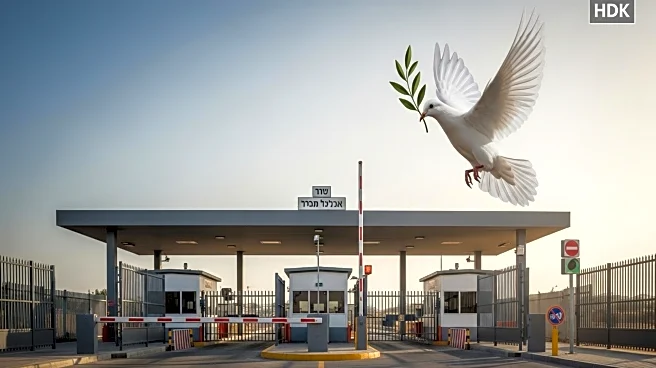What's Happening?
The Israeli government has decided to reopen the Rafah Border Crossing in southern Gaza after Hamas returned the remains of four hostages. This decision marks a significant development in the ongoing conflict
between Israel and Hamas. The crossing had been closed as a punitive measure due to Hamas's failure to uphold its commitments under a ceasefire and hostage deal. The reopening allows trucks carrying humanitarian aid to enter Gaza, restoring aid flow to normal levels. This move follows a ceasefire agreement that went into effect recently, aiming to stabilize the region and facilitate humanitarian efforts.
Why It's Important?
The reopening of the Rafah crossing is crucial for humanitarian aid delivery to Gaza, which has been severely affected by the conflict. It signifies a potential easing of tensions between Israel and Hamas, providing a pathway for further negotiations and peace efforts. The return of hostage remains by Hamas could be seen as a gesture towards fulfilling ceasefire agreements, potentially leading to more constructive dialogue. This development impacts regional stability and could influence international diplomatic efforts aimed at resolving the conflict.
What's Next?
The Israeli government expects more releases of hostage remains, which could lead to further easing of restrictions and sanctions. The situation remains fluid, with potential for additional negotiations between Israel and Hamas. International stakeholders, including Egypt, may play a role in facilitating these discussions. The reopening of the crossing might encourage other humanitarian initiatives and support from global organizations, aiming to address the needs of the affected population in Gaza.
Beyond the Headlines
The ethical implications of hostage exchanges and the reopening of crossings highlight the complex nature of conflict resolution in the region. The humanitarian aspect underscores the need for sustained international attention and support to ensure the well-being of civilians caught in the crossfire. Long-term peace efforts may require addressing underlying issues such as territorial disputes and political recognition.









